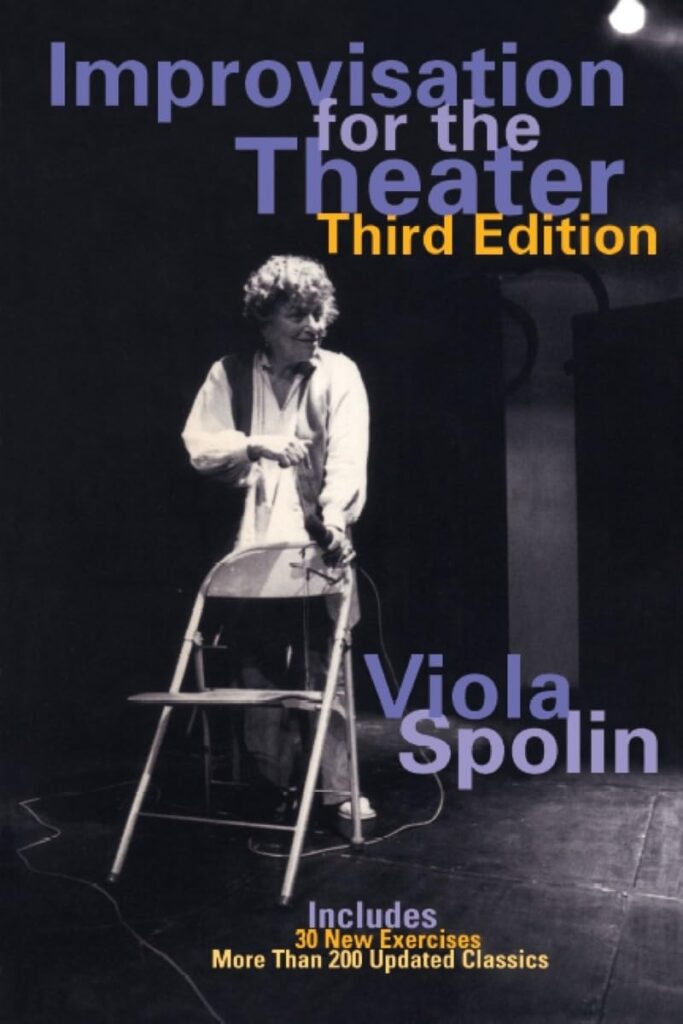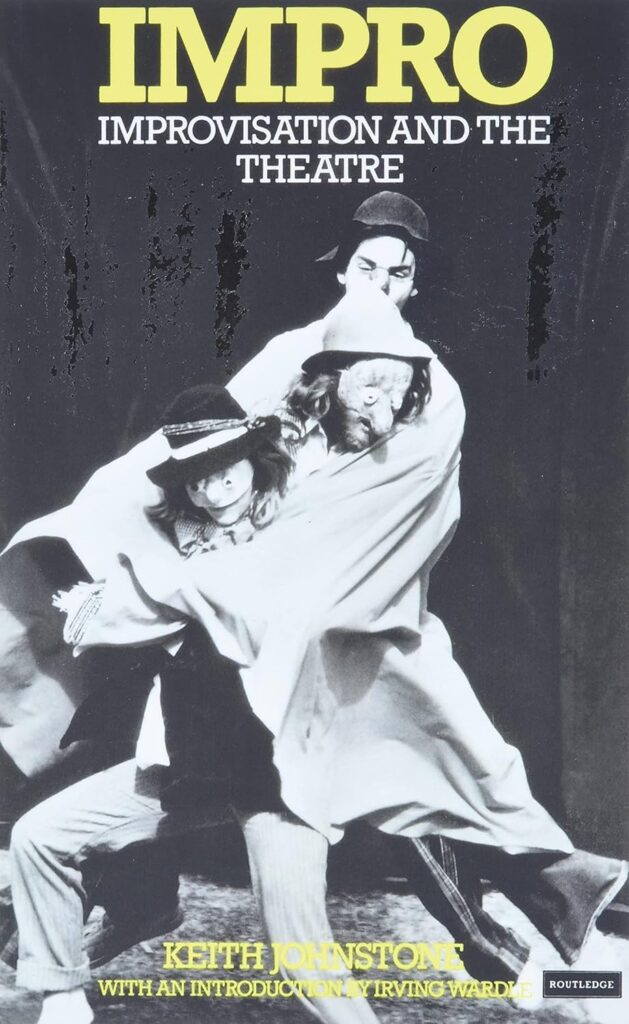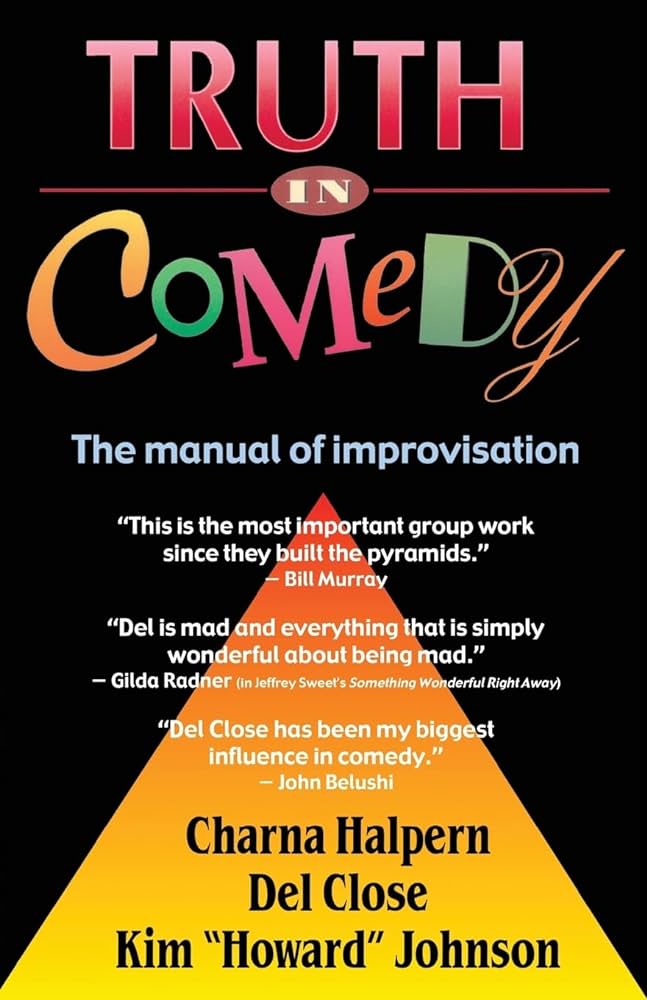The Classics
When I first started doing improv, these were pretty much the only books out there. They have their uses, but they are most interesting to me as historical perspective.
- Improvisation for the Theater – Viola Spolin’s exercises arose from her work in theater particularly working with children. She is the godmother of all the improv that followed. Her son was one of the founders of Second City, so her spark has ignited a lot of the comedy of the last 50+ years.
- Impro: Improvisation and the Theatre – This book has always been a bit of a slog for me to get through, but there are some gems within. Johnstone is the source of Theater Sports, a more competitive and game based style of performing improv.
- Truth in Comedy: The Manual of Improvisation – This book was the first place I learned about the Harold. It mostly confused me, but it made me curious enough to go all the way to Chicago to figure it out at the source. It’s not the greatest book on improv (or the Harold), but it is worth the quick read.
The History
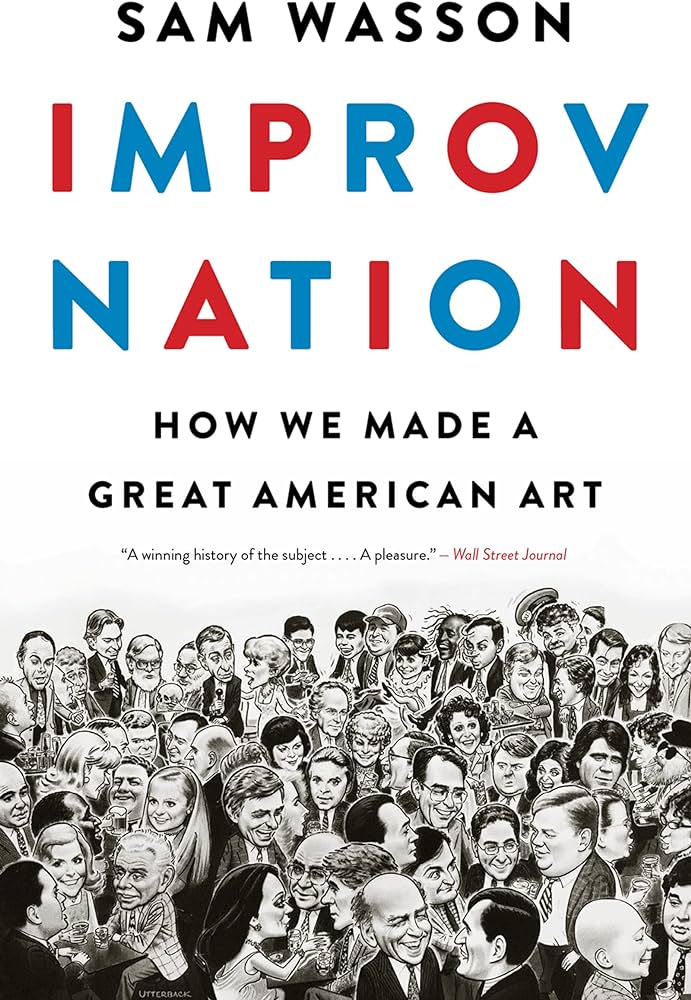
- Improv Nation: How We Made a Great American Art – This is a great history of the art and the most thorough one I have found. It is dense in places, but ultimately worth the read if you want to know where “improv” as we know it today came from and a sweeping list of its impact on comedy as a whole.
The Practical Guides
These are the books that I refer back to the most when I feel stuck in a rut. Some of these writer’s were my teachers too, so there may be some bias as well. Like with any teacher of improv, each of these books offers a different perspective on an ever-evolving art form. They may not completely speak to you, but I think each of these books has some gems that could help anyone’s understanding and performance of the practice of improv.
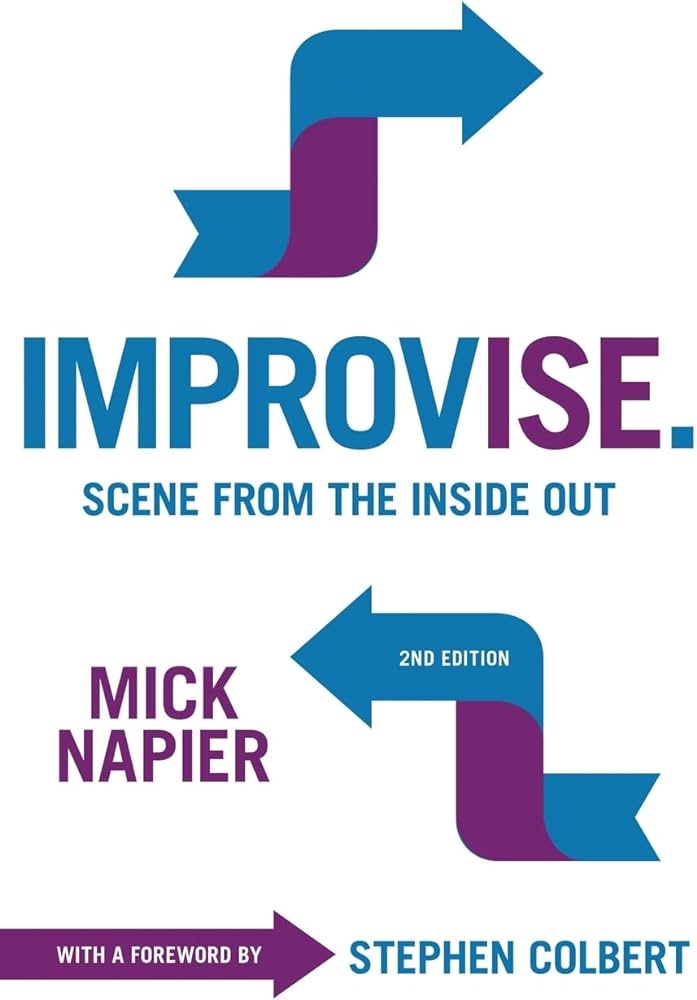

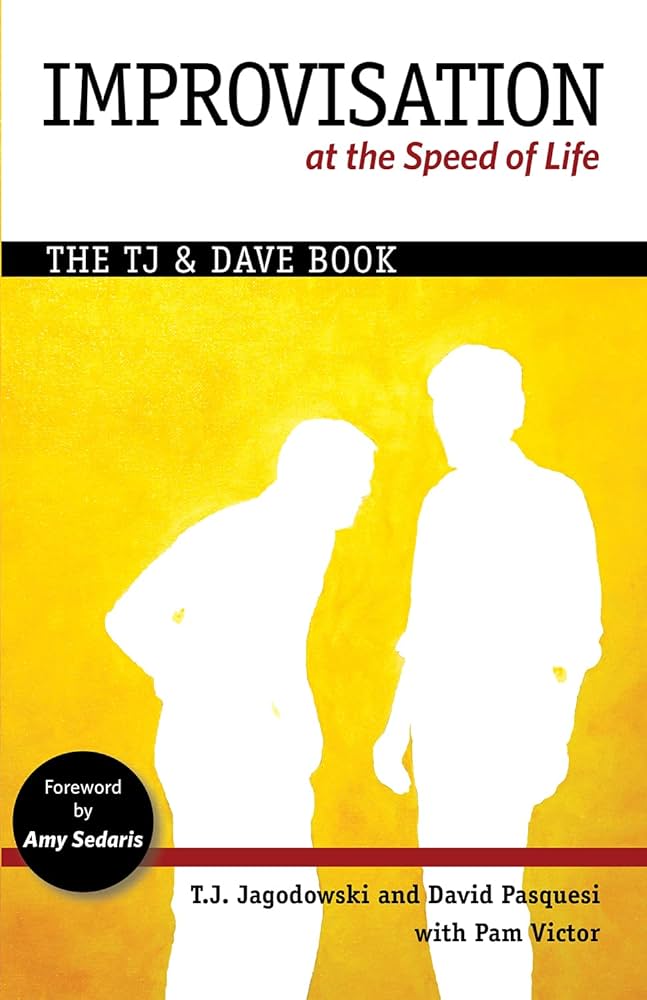
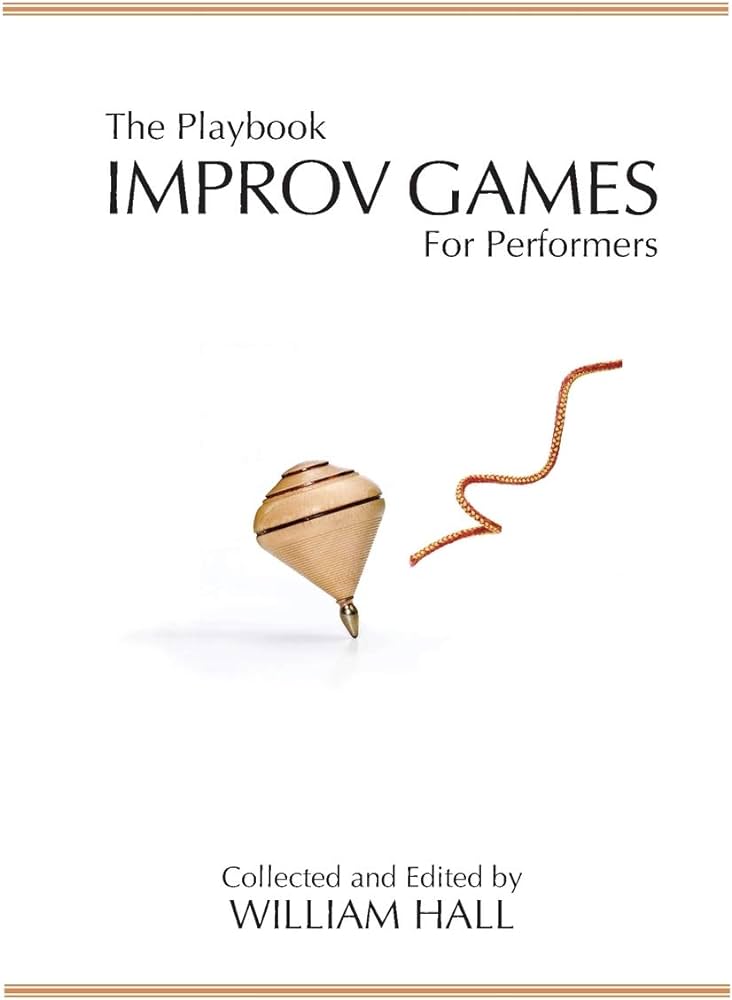
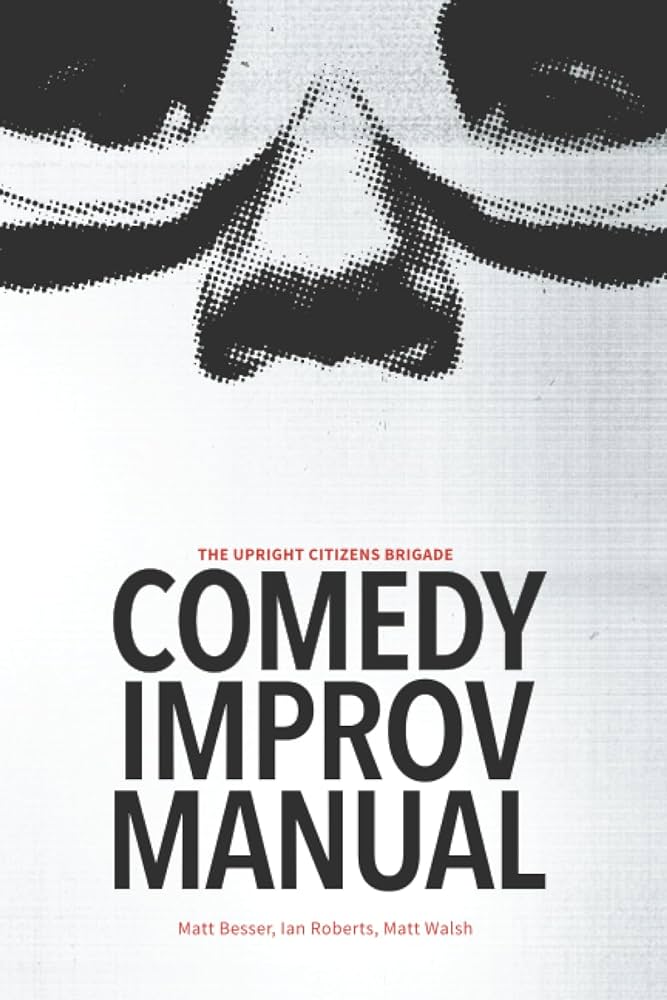
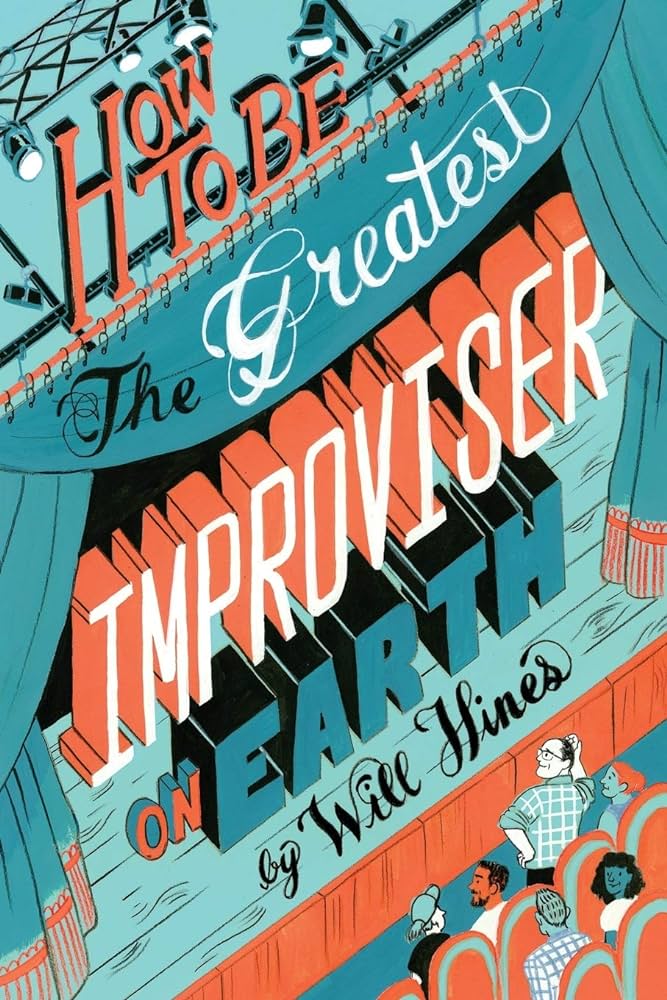
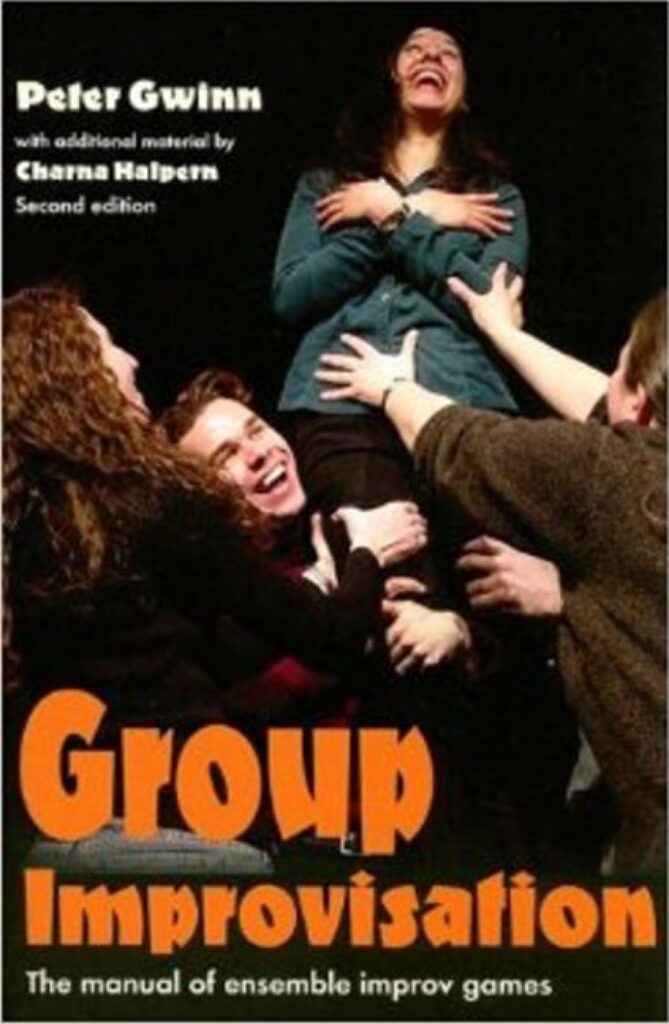
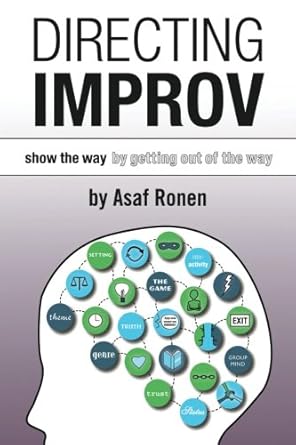
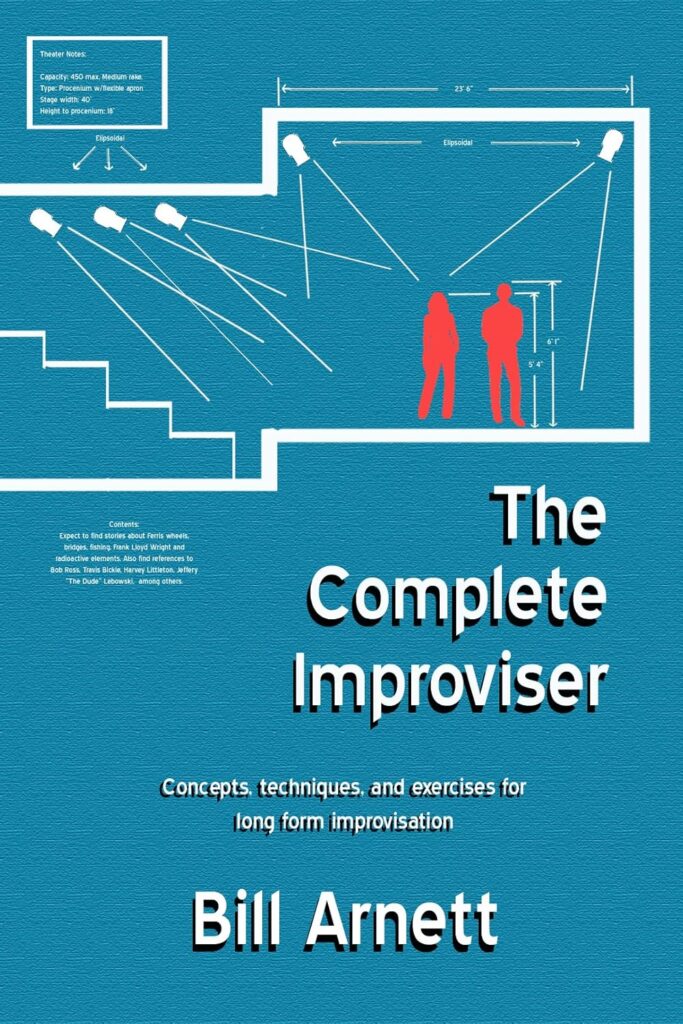
- Improvise: Scene From the Inside Out – Mick was one of my favorite and one of the best teachers I had in Chicago. His approach was seen as somewhat controversial at the time as it eschewed the “rules” of improv, but I mostly see it now as looking at the same concepts from a different perspective. Semantics and philosophy aside though, there are also some really practical tips in these pages.
- Behind the Scenes: Improvising Long Form – This is a good follow-up and not for beginners. It is a deeper dive into long-form. Napier’s writing style is very conversational and quirky and might not be for everyone, but there are definitely useful nuggets within.
- Improvisation at the Speed of Life – I was a cocktail server at IO in the early 2000s and got to see TJ and Dave every Wednesday night. It was a master class. Their approach is slow and deep and more artistic than many may be interested in, but I’ve never seen better improv. The format of this book is a series of conversations and not in the best order, but it is yet another perspective worth considering.
- The Playbook: Improv Games for Performers – While most of the books in these recommendations are from the Chicago improv scene, this book’s origins are Keith Johnstone and Theatersports. It is a great list of short-form games and suggestions for variations, but it also includes some great tips and even a few long-form references.
- Comedy Improv Manual – This is the most comprehensive text on this list (if the word “Manual” didn’t give that away) and it is almost all about the UCB perspective and approach to improv and most specifically their version of the Harold. It is dense. It has a lot of rules. It has a lot of examples. The TIM approach was greatly influenced by this approach to improv.
- How to be the Greatest Improviser on Earth – Hines was a student of the UCB and so his approach to improv is firmly rooted in their fast-paced approach. I’m not sure the title can actually deliver, but this is another unique perspective on the art.
- Group Improvisation – This book feels a little dated or maybe just elementary for more advanced groups, but there are still some gems within and I appreciate the emphasis on the collaborative aspects of improv.
- Directing Improv – At this point in my improv journey, this is the book I lean on the most. As a coach and a teacher, there are countless pieces of wisdom and guidance for supporting groups where they’re at and advancing the art of improv. It contains plenty of general improv wisdom as well.
- The Complete Improviser – This is a lovely little book. It reads like a philosophy of improv and definitely adheres to the slower and deeper Chicago style approach to improv.
Books NOT About Improv That Made Me a Better Improviser
These titles aren’t specially about the art of comedy improv, but I think about them often in the context of improv. The third one is only kind of a joke.
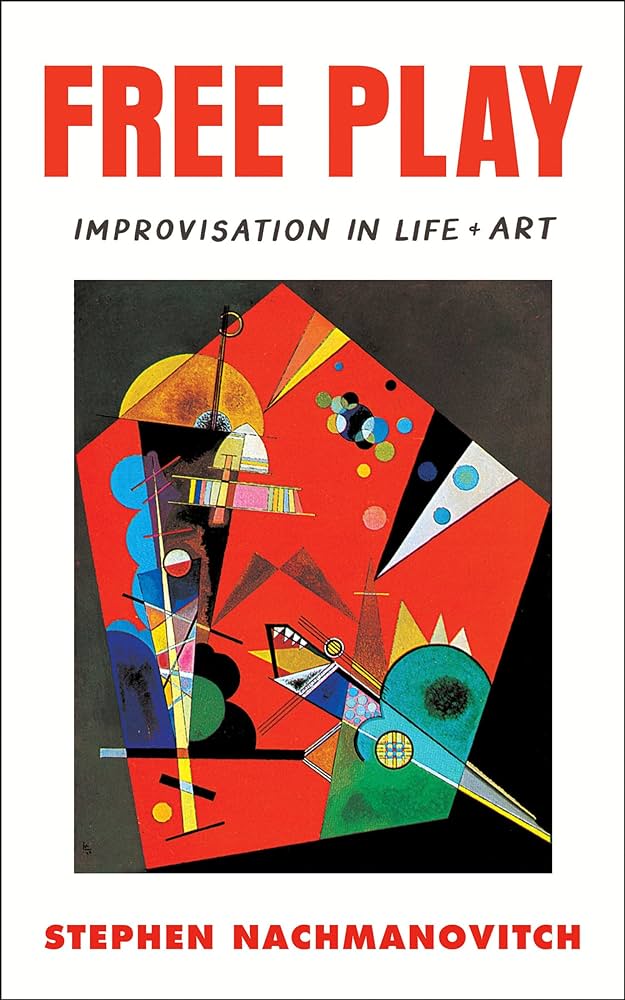
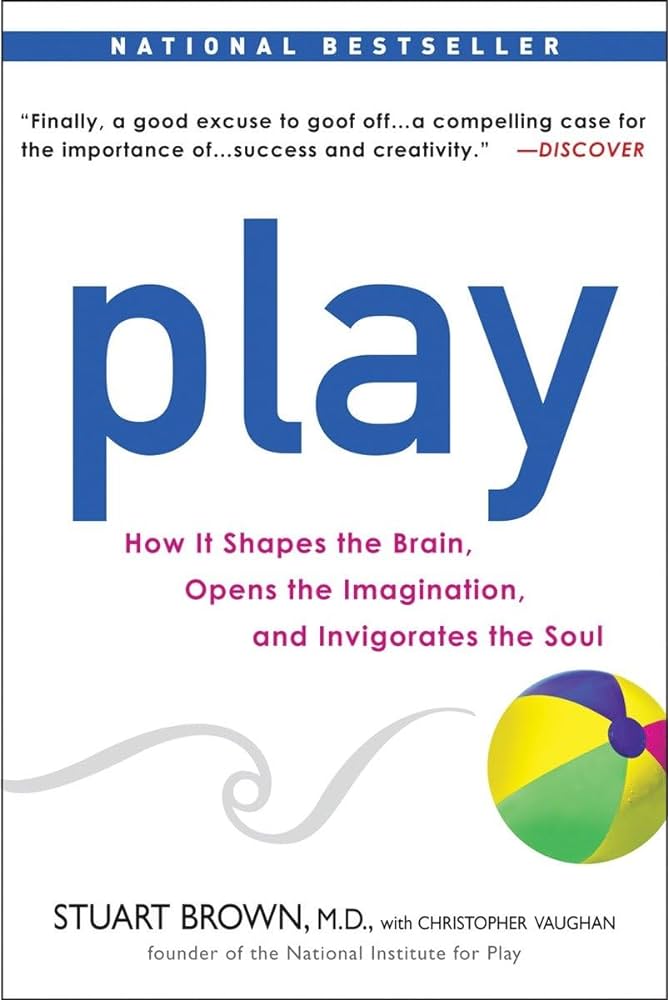
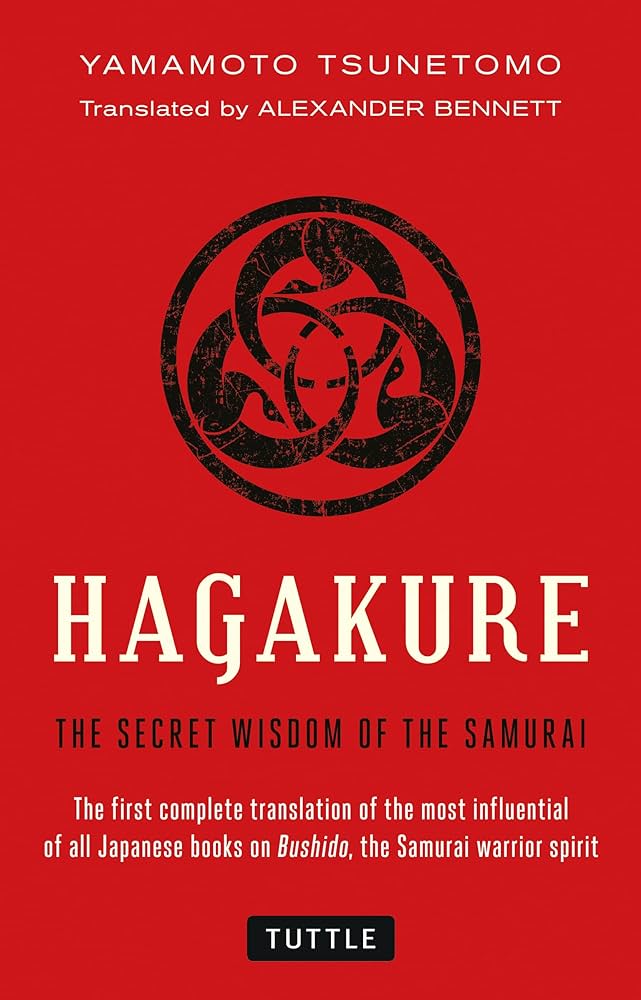
- Free Play: Improvisation in Life + Art – Nachmanovitch is a world renowned musician and so this book primarily looks through the lens of musical improvisations such as in Jazz music, but this book is packed with insights into the nature and beauty of entering a flow state and making it up as we go along.
- Play: How it Shapes the Brain, Opens the Imagination, and Invigorates the Soul – Everyone should read this book. Play is so important to being a human and is too often overlooked as something frivolous or just for children.
- Hagakure: the Secret Wisdom of the Samurai – “When one has made a decision to kill a person, even if it will be very difficult to succeed by advancing straight ahead, it will not do to think about going at it in a long roundabout way. One’s heart may slacken, he may miss his chance, and by and large there will be no success. The Way of the Samurai is one of immediacy, and it is best to dash in headlong.” Improv! Right?
Did I Forget Anything?
I haven’t read every book on improv. Yet. I have a few others in the queue that I’m hopeful about, so check back for updates.

